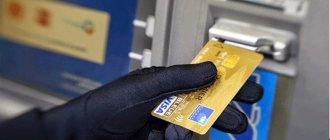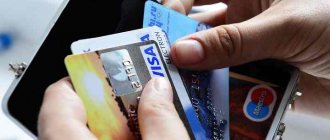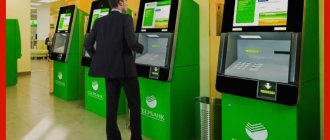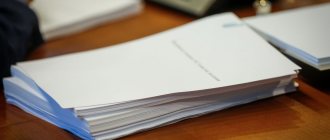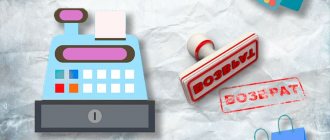The legislative framework
- Federal Law No. 229 “On Enforcement Proceedings” states that if there are not enough funds in an account in Sberbank or another banking institution of a citizen to repay the debt, then subsequent proceeds will be seized - until the amount of the debt is accumulated in full.
- Article 115 of the Criminal Procedure Code of the Russian Federation defines the procedure for seizing bank funds for payments in execution of a court verdict in civil and other claims, which also provides for confiscation of property.
- The procedure for seizing bank accounts by bailiffs is stated in Federal Law No. 118, 395-1 - “On Bailiffs”, “On Banks and Banking Activities”.
- To enforce a claim, funds may be seized at any stage of the arbitration process. This is stated in Article 91 of the Arbitration Procedure Code of the Russian Federation.
In order to ensure the legality of the actions of the performers and prevent various insinuations with the law, amendments have been made to the law on bailiffs in Russian legislation. Before depositing them, banks “frozen” only those funds that were already in the accounts at the time of the request from the bailiff . Now banks are given the right to write off money from an account within one day and “freeze” the account until the entire debt is repaid. Both salary and credit bank cards to seizure . You can write off funds not exceeding 50 percent of the amount from salary receipts.
Which cards are not subject to seizure
The Law on Enforcement Proceedings limits the procedure and procedure for applying enforcement measures. Although the judgment is enforceable, this process should not leave the debtor without a livelihood. Therefore, a number of legal provisions contain restrictions on the amounts and types of cash receipts that can be seized. If the seized card and account belong to one of the preferential categories, the seizure can be removed from them or the amount to which it applies can be limited.
Salary
Seizure of a salary card (more precisely, funds received on it) is possible subject to the restrictions established by the Law on Enforcement Proceedings. The law provides that the debtor has the right to retain the funds necessary for life. Therefore, seizure can be imposed only on part of the income on the salary card - no more than 50% (for some types of debt - up to 70%).
Read more about the features of garnishing a debtor's wages here.
If the funds were written off in full, it is likely that the bailiff was not notified that the card and account were a salary account. There may also be a mistake on the part of the bank. Therefore, in the event of salary arrest, it is necessary to contact the bank and the bailiff with a request to unfreeze part of the funds in the account on the grounds that it is a salary account.
It is important that the rule on limiting the amounts that can be garnished only applies to the last payment of wages. Restrictions do not apply to funds accumulated in the account. They may be subject to full arrest.
Expert opinion
Lawyer Alexander Vasiliev comments
From 2021, there should be fewer erroneous blockings of wages in full (instead of the percentage established by law). In accordance with the new edition of clause 5.1. Art. 70 of the Law on Enforcement Proceedings, employers and other persons sending money to the debtor are required to indicate the type of income code when sending the payment. This will make it possible to determine wages and other similar payments, the collection of which is subject to restrictions.
Social
Article 101 of the Law on Enforcement Proceedings limits the seizure of certain types of social benefits. You cannot seize:
- Payments to compensate for injury to health or in connection with the death of a breadwinner;
- Payments in connection with the care of disabled citizens;
- Alimony and amounts of payments for children during the search for their parents;
- Travel allowances, payments from the employer for tool wear, in connection with the birth of a child, death of relatives and marriage registration.
Child and social benefits cannot be seized. Read about why the law protects them and how to lift the arrest if it was imposed in a separate article. However, seizure of unemployment benefits is allowed within the same limits as established for wages (more about this here).
With regard to the pension card, it is possible to seize old-age and disability insurance pensions, as well as funded pensions and fixed-term pension payments - also with the restrictions established for wages. Read more about the procedure for seizing a pension in another material on our website.
Credit
Seizing a credit card does not comply with the law. The funds on the credit card are not the debtor's money. This is money that belongs to the bank. If you use them, the cardholder will have to return them to the bank within the period determined by the terms of service of the card.
Expert opinion
Lawyer Alexander Vasiliev comments
In accordance with the Law “On Enforcement Proceedings,” the bailiff can only seize the debtor’s property (including funds). It can be owned by both the debtor and third parties, but only the debtor can be the owner of the seized property.
The decision whether to use credit funds or not must be made by the cardholder himself. The bailiff, on his own initiative, does not have the right to seize a credit card account or write off funds from it.
In this case, it is possible to write off against the debt the funds received on the credit card to repay the overdraft. Therefore, if the credit card is seized, the debtor must:
- Notify the bailiff that the card is a credit card;
- Contact the bank to arrange repayment of the overdraft.
Debit
A debit card is issued to the bank account in which the debtor’s savings are located. They can be seized without any restrictions, unless the card is a salary or credit card. The restrictions applicable in these cases were described above in the article.
Seizure procedure
- Procedural actions to “freeze” accounts can only be started after receiving a judicial enforcement act or an order to collect debts from a specific person. The first thing to do is to immediately send, for example, to Sberbank or other financial institutions, requests to identify all accounts opened in the name of this citizen and establish the funds that are available on them. After this, a writ of execution is sent to the credit structure indicating a certain amount. In this case, the indicated amount is increased by the costs of enforcement fees and all actions related to this procedure.
- When Sberbank receives a court order, it immediately stops all transactions related to expenses on the specified account. Provides the bailiff with all the details of the defaulter and reports the balance of money in his account.
Seizure of an account in Sberbank , as in any other financial institution, means a complete stop of all kinds of expense transactions and blocking cards .
to seize a card in Sberbank and other banks only after the following documents are presented to the financial institution:
- performance list;
- judicial act;
- bailiff 's order .
How is debt repaid?
If at the time of the arrest there was enough money in the account to repay the debt, then after the forced write-off of the funds, the debt is considered repaid, and Sberbank will unblock the card after a written request from the bailiff about this. This usually happens within 3 business days.
If there are insufficient funds, the available amount is written off immediately, and the remaining debt is written off in installments. Moreover, the amount written off should not exceed 50% of the amount of incoming funds. The debtor can pay off the debt independently in any way and apply in writing to the bailiff with a request to lift the arrest from the accounts in Sberbank.
[custom_ads_shortcode3]
When can bank accounts be frozen?
The Federal Bailiff Service of the Russian Federation may seize the accounts and cards of citizens in the following cases:
- non-payment of taxes;
- malicious non-payment of payments for housing and communal services (more than six months):
- failure to fulfill loan obligations;
- non-payment of alimony;
- securing claims in civil disputes.
But not all accounts and cards will be seized by bailiffs for debts. Targets where the following funds are transferred are not subject to such actions:
- disability benefits;
- pension or compensation for loss of ability to work;
- child support.
But if these funds do not go to a separate account, but, for example, to a salary card , then all funds will be seized To challenge the illegality of such an action, you will need to go to court.
cannot be seized either . If, nevertheless an arrest is imposed , then such an action will be canceled after the provision of an agreement specifying the account details.
A pension account or card . But half of the monthly pension can be withdrawn to pay off the debt. A reason to challenge the amount of withdrawal may be a protest about its reduction indicating the minimum subsistence level. It cannot be removed.
To collect the debt, the bailiff applies with a resolution to the Pension Fund. The Pension Fund blocks funds and makes contributions to the transit account of the Federal Bailiff Service until the specified amount and office expenses have been accumulated.
Why can bailiffs withdraw money from a Sberbank card?
According to Art. 12 Federal Law No. 229, bailiffs withdraw funds from a Sberbank card on the basis of the following executive documents:
- court decision on collection of debts and debts;
- court decisions imposing a fine;
- court order or writ of execution for alimony payments;
- notarial agreement.
At the same time, FSSP employees are obliged to inform the citizen for what reason the funds were debited from the Sberbank card. The bailiffs must issue a resolution to the debtor to initiate enforcement proceedings.
How to remove a seizure from an account?
- You can cancel a court decision to block accounts by presenting documentary evidence that all debts have been repaid.
- If the decision of the FSSP is illegal, it will be appealed to the territorial body that made such a decision.
To appeal illegal actions, you must file a complaint with the FSSP department. If the answer is unsatisfactory, you need to go to court with a claim, to which evidence of violation of the law must be attached.
In the event that the FSSP department does not have an appropriate response to the documents provided regarding debt repayment, you need to request a document on the lifting of the arrest in hand. This document is submitted to Sberbank and the blocking of the account or bank card is removed.
Documents proving debt repayment are:
- bank receipt;
- the plaintiff's refusal of claims;
- payment of debts by others;
- a document drawn up with a creditor and certified in a legal manner regarding the restructuring or cancellation of a debt.
When the FSSP, after providing all these documents, refuses to issue a resolution to lift the blocking of the account, you need to prepare the following documents:
- lawsuit;
- complaint to the prosecutor's office:
- copies of documents that were submitted to the FSSP.
After reviewing the submitted documents, the court makes a decision to unblock the account and card . A copy of this decision must be submitted to the bailiff, and he is obliged to immediately carry out all actions to remove the seizure from the account.
Applications to court with a complaint against the actions of the Federal Bailiff Service are not subject to state duty.
Possible reasons for the seizure of a Sberbank salary card
Faced with such a situation, the question immediately arises of what to do next. But first, it is more important to find out why this happened and who initiated it. Most often, the bank carries out blocking by written order of the court or by decision of the bailiffs. This action occurs in the presence of debts. They can form for the following reasons:
- Unpaid loan;
- Overdue loan;
- Failure to pay utility bills;
- Traffic police fines;
- Other fines and debts.
A card is blocked by a sequential procedure in which a company or institution sues a fined person and demands that a specific amount of funds be withdrawn from him. In some cases, when this is impossible, due to its large amount, collection occurs gradually, forcing payment from the debtor's wages. Thus, a decision is made to block the client’s access to the account into which income from work is accrued, so that the debtor cannot independently manage the money. They can also withdraw part of the funds monthly or the entire amount available.
By court decision, Sberbank may freeze client accounts
It is worth mentioning that no one has the right to withdraw more than half of the client’s official salary. However, the bailiffs do not have information about this value, so they exercise the right to take any measurements. To avoid this kind of thing, you need to take a certificate indicating these parameters to your bailiffs. In this case, there is no doubt that half of the salary will remain at the disposal of the client. But they can only be used after the sanctions are lifted.
Instructions for removing sanctions from an account
Having discovered that the account is blocked or arrested, the client must first contact the bank branch to find out the specific reason. Sberbank's phone number is free 24/7 8800555. If the bailiffs have seized a Sberbank salary card, what to do should be found in these instructions:
- Visit a bailiff (you may need to make an appointment in advance).
- Obtain all documents that are relevant or gave rise to the client's case.
- It is worth studying all the information in detail to ensure the legality of this case.
- You need to write a statement indicating that the debtor’s earnings are transferred to this account. Also indicate the specific size and confirm it with a certificate from the accounting department. It should contain data for 6 months.
- The bailiff will decide whether to lift the sanctions. An order may also be issued to transfer half of the amount towards your obligations.
This information will be sent to the bank. Now the client will have the right to receive at least half of his income, and the second will be redirected to pay off debts.
There are several most popular reasons for penalties - non-payment of loans and fines for traffic violations
If Sberbank has seized a salary card without a court decision, you need to submit an application to the branch, describing the illegality of the procedure and demand that the seizure be lifted. The same reasons should be indicated: the account is the only source of income that cannot be closed.
That bailiffs do not have the right to arrest
If, for example, there is no cash account in Sberbank , bailiffs can seize the property of the defaulter. To do this, they must have a corresponding resolution. But there are things that are prohibited by law from being taken to pay off debts:
- state awards, prizes, badges;
- a disabled debtor does not have the right to take away a car or other property without which a person cannot live;
- firewood, coal, and other fuels that a citizen uses during the heating season or for cooking;
- money and products. The amount of money and the cost of products cannot be less than the established subsistence level;
- seeds for spring sowing;
- poultry, rabbits, livestock and other living creatures, their feed, outbuildings, if they are not used for commercial purposes;
- property intended for the debtor's professional activities. Exclusion of items whose price exceeds 100 minimum wages;
- clothing, furniture, household appliances. But there is an exception - jewelry and other luxury items.
If the debt is less than three thousand rubles, then the accounts are not seized at all.
Author of the article
How to seize accounts in Sberbank
When a seizure is made, the client’s access to using the card or account is blocked, and the required amount of funds is forcibly written off in accordance with the law. Bailiffs are not required to notify the client about the planned arrest; most often this happens suddenly and unexpectedly.
If the arrest was imposed legally, then the sequence of the procedure is as follows:
- Initially, the plaintiff independently tries to collect the debt through written and oral notices, calls and messages to the debtor.
- If the defendant ignores the plaintiff's demands to repay the debt, he can sue. The court makes a positive decision on the request to pay the debt.
- If the debtor voluntarily does not want to repay the debt, the bailiffs submit an application to all banks to obtain information about all the debtor’s existing accounts and deposits.
- Upon receipt of such a legal requirement, bank employees are obliged to provide the bailiffs with the necessary information as a matter of urgency.
- Next, the bailiff, on the basis of a lawful court decision, requires the bank to block the debtor’s accounts and transfer available funds to pay off the debt.
Right now you can apply for a loan, credit or card to several banks for free. Find out the conditions in advance and calculate the overpayment using a calculator. Want to try?
[custom_ads_shortcode1]
What to do if you are arrested
The experience of communicating with bailiffs and dealing with judicial collections can hardly be called positive, but everyone should know the specifics of the procedure, how to resolve a problem with banks, since anyone can become a defaulter without receiving timely notification of emerging financial claims.
As soon as a notification about the seizure of a card or account appears, the debtor contacts the FSSP service or another body indicated as the collector. You can find the contacts of the bailiff who opened the enforcement proceedings in the writ of execution (if a copy is received), in the FSSP database or the bank itself, if this is provided for by the rules of the financial institution.
There are only three options for action when seizing bank details:
- Pay the debt immediately and obtain from the bailiff a certificate of repayment and closure of enforcement proceedings.
- Challenge the bailiff's decision to block or demand the closure of enforcement proceedings by contacting a judicial authority.
- Allow the bank to write off funds as part of the execution of a court order as funds are received into the account. Money from a salary account cannot be written off in full - only half of what is earned can be used for repayment. In exceptional cases, the debt burden increases to 70% of the salary. When the debt is cancelled, the bailiff sends a notice to the bank to close the enforcement proceedings and lift the arrest.
Seized accounts significantly complicate a person’s life, and in some cases cause disagreement from the debtor. The fact is that the bailiff, due to ignorance of the intended purpose of the account or card, also blocks the details used to receive child benefits, alimony, and disability pensions.
Such write-offs are unlawful, and the debtor has the right to demand the return of funds written off illegally by going to court.
Incorrect charges on debit cards that have an overdraft are no less common. The client may not suspect that the account is not only frozen and reset, but also has a negative balance.
Before applying to a judicial authority, a mandatory pre-trial settlement is provided. To do this, the debtor sends a written statement in which he explains the situation and substantiates the error of the arrest, referring to the provisions of the law.
If the judicial authority takes the plaintiff’s side, it is necessary to wait for the decision to enter into force and transfer it to the FSSP.
Expert opinion
Korolev Stanislav Vitalievich
Lawyer with 10 years of experience. Specialization: family law. More than 3 years of experience in defense in court.
Interaction with each bank has its own nuances. It is easy for Sber clients to track the status of debt settlement if they have access to their personal account.
In the Sberbank Online application, next to the card, its status and arrest mark are indicated with a link to the executive document. If accounts in other banks have been frozen, you should contact the hotline and discuss ways of further action to resume cooperation.
FAQ
In the last section, we have prepared answers to questions that arise as a result of card blocking. If you have another question, we suggest asking it through the “Comment” form. A specialist from our portal will definitely answer it within 1 day.
What should I do if loan payments are debited from my card?
First of all, the debt for enforcement proceedings is written off from the seized account. In order to avoid delays, deposit into the account an amount that is enough to cover the debt under the writ of execution and repay the next loan payment.
Which accounts are not subject to seizure?
If wages or pensions are credited to the account, then 50% of the proceeds will be withheld until the debt is fully repaid. Cards intended for receiving child benefits, disability payments and other social benefits are not seized. Credit cards are also not subject to restrictive measures, since the bank’s money is in the account, not the client’s.
If a card with social benefits is seized, you must provide the bailiff with a document from the bank about the purpose of the account. The arrest will be lifted and the money will be returned to the debtor.
How can I find out if my card has been seized?
The easiest way to clarify this information is in the Sberbank Online service. Log in to your personal account, select the card for which you want to know information. If there is no note next to the card “Foreclosure or seizure in effect,” then no sanctions have been imposed.
You can also find out information about the arrest at the nearest Sberbank branch using your passport, or by calling the hotline.
What to do if the debt is repaid, but the seizure of the card has not been removed?
If the debt is paid but the arrest is not lifted, do not be upset. Most likely, there were technical delays, and the bailiffs did not have time to prepare documents for sending to the bank.
After writing off the debt, the bank sends the money to the FSSP accounts. It takes the bailiff several days to check the amount of receipts and generate documents on the termination of proceedings. Next, the bailiff sends documents on lifting the arrest to the bank. Only after receiving the documents, the bank removes restrictions from the card within 3 days, and the client can freely make any payment transactions using it.
All these steps are important to consider when checking the card status. If the arrest has not yet been lifted, there may be delays at one of the stages. To clarify the situation, contact the bailiff by phone or in person. Often, confusion in documents or the workload of bailiffs affect the delay in lifting sanctions.
What if the arrest is still not lifted?
Keep, document and catalog all bailiffs’ responses in writing and in other forms. This may be your main argument when appealing the decision.
Submit another application, taking into account the comments on the first application received earlier from the bailiffs. If the second request is also denied, collect all documented responses, copies of applications and other papers, and then either contact the immediate head of the FSSP inspectorate or the court. If there is an obvious violation of the law, both the authorities and the court will take your side.
Seizure of a bank card. What does it mean? How is an arrest lifted?
Every person with a plastic bank card must be prepared for the fact that at some point it may be seized or blocked. Naturally, such a situation can occur under the influence of certain factors or conditions about which it is necessary to have as much information as possible.
Let us also note this important point: each plastic card is linked to a specific current account opened for an individual. If the card is blocked, then the account may also be blocked or not.
But if the card is frozen, then the account is also frozen, that is, no debit transactions can be carried out on it until the situation is fully clarified and resolved by the owner and the credit institution.
As a rule, any financial transactions on the part of the owner of the funds lead to the seizure of the card and account, for example, failure to pay a tax or fine, etc. You must have accurate and complete information about all such points so as not to end up with a seized card in your hands.
In this case, a situation is possible in which the card owner will not even know when his card was blocked and for what reason. In order to understand the situation, you need to understand why the bank card was seized and what needs to be done to make it active again.



